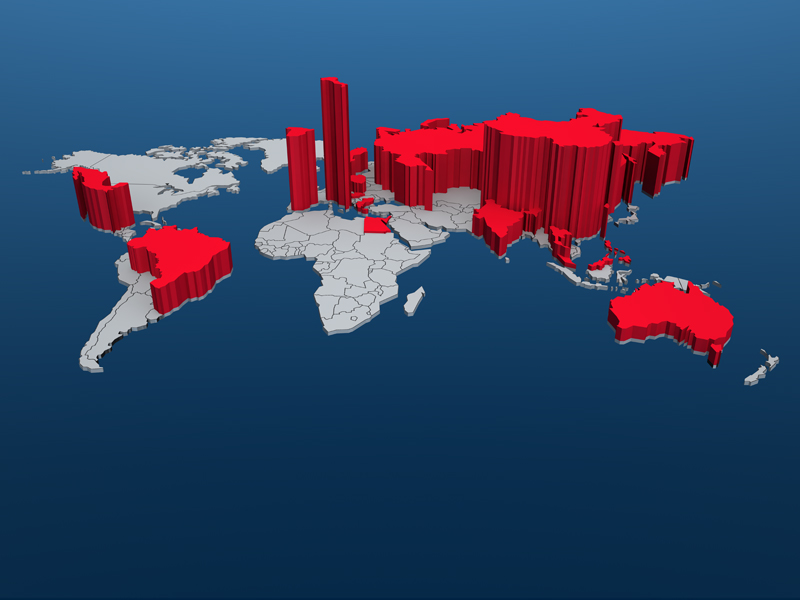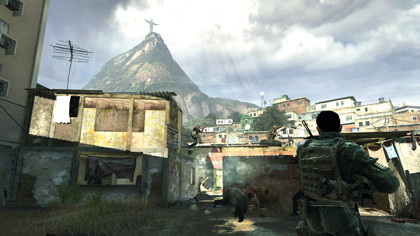The truth about PC game piracy
The figures, the excuses and justifications examined

There used to be three big topics that you shouldn't talk about at parties: sex, politics and religion. But now a new subject has slipped into the mix – piracy.
Whether you're referring to music, movies or games – or oil tankers – this particular subject has a tendency to make everybody in the room froth at the mouth, whichever side they're on.
Some advocate it, saying that it is hardly a crime when you consider how much the publishers charge for games, their increasingly awful DRM and bad after sales service. Others think it's the same as stealing a car. There are even those that think it's a silly argument about something that isn't that big a deal.
No matter how you look at it, piracy is the topic du jour. It has been blamed for the decline of the PC gaming industry, terrorism, the collapse of businesses and pretty much anything else that you can think of, but there still doesn't seem to be any hard facts about the true impact on the industry.
Certainly there have been big figures thrown about in the media, but they haven't been very specific and don't take many important factors into consideration. Add in stringent DRM measures that have legitimate gamers taking most of the strain, the vociferous debate over how these measures are implemented, plus a pervasive attitude of 'yo ho ho and a bottle of rum' and you have a keg of dynamite that everybody keeps throwing matches into.
In this article we've spoken to publishers, developers, government organisations and even to pirates themselves to find out exactly what the truth is, and why we should care.
What is piracy?
Sign up for breaking news, reviews, opinion, top tech deals, and more.
It's really difficult to pin the subject of PC gaming piracy down. There is so much conflicting information out there that it's no wonder people go around in circles trying to find some kind of answer.
For one thing, everyone has a different opinion and conflicting evidence about how the industry is being affected. A recent report from the Entertainment Software Association said that over 9.78 million games were successfully downloaded illegally during the month of December 2009.
However, these figures only represent 200 games that were accessed on the most popular peer-to-peer platforms like BitTorrent, eDonkey, Gnutella and Ares. They also neglect to mention the legitimate sales figures for those same titles in that same month.
In 2008, after the demise of Iron Lore Entertainment, Michael Fitch, director of creative management at THQ, posted some interesting facts on the Quarter To Three forums. "The research I've seen pegs the piracy rate at between 70 to 85 per cent on PC in the US, 90 per cent plus in Europe, off the charts in Asia."

MODERN WARFARE 2: The pirates choice in 2009. An estimated 4.1m copies were downloaded in a mere two months
He goes on to say that, "I didn't believe it at first. It seemed way too high. Then I saw that Bioshock was selling 5 to 1 on console vs PC, and Call of Duty 4 was selling 10 to 1. Given the difference in install base, I can't believe that there's that big a difference in who played these games, but I guess there can be in who actually paid for them."
Having a seizure
John Hillier, Intellectual Property Crime Unit manager at ELSPA says, "Have we made a difference? I think because we have difficulty quantifying levels of piracy it's hard to say. I haven't seen an increase year on year on the seizures [of pirates/pirated goods], so I think at the moment we are just holding back the tide. I don't think it's gone down and I don't think it's gone up – the levels of seizures are staying fairly constant and that's the only measure I have."
ELSPA offer a view from the other side of the coin as they focus on the more physical aspects of piracy – master discs and circumvention devices – and most of their figures relate to console-based piracy. The problem is that the same answer was received across the board when we asked what the impact PC game piracy was having on the industry.
According to the Entertainment Software Association, the video game industry lost about three billion dollars in 2007 and the Business Software Alliance put the losses to companies for software piracy (all forms of software) at around $53 billion. These figures are frustratingly vague, though, as you can't guarantee that every pirated copy is a lost sale.
In 2008 a study by Reflexive showed that for every 1,000 attempts to stop piracy, they got one additional sale. This isn't exactly a case for pirates roaring down the high street destroying small businesses in a single bound.
Nihal de Silva of Direct2Drive says, "It's difficult to say what effect piracy is having on the industry as a whole. PC gaming has long been thought of as an industry in decline, with sales of boxed PC games falling sharply as consoles became the weapon of choice for the modern gamer. Without the availability of an official digital chart, however, this message is skewed."
Sailing the torrents
It would be very interesting to see publisher revenues and DRM statistics. Solutions like Steam don't release figures for games sold, nor do we know their success rates regarding piracy, yet these solutions are becoming increasingly popular and many of the developers that use them are still claiming considerable losses from piracy.
What seems to be lacking most is reliable information. One way of assessing the approximate scale of piracy for PC games is to look at the torrents for the pirated releases of recent big-name games – although this does ignore the other forms of piracy including physical copying.
According to TorrentFreak, the clear winner for 2009 was Call of Duty: Modern Warfare 2 with 4.1 million pirated downloads in November and December 2009 – a shocking number when compared to the estimated PC sales of 300,000 in November, of which approximately 53,000 were for the UK in that same month.
Unfortunately when you compare this to the console, the figures for November 2009 are almost completely reversed, with six million copies selling legitimately and 970,000 pirated. The numbers were almost identical across all the top ten titles. With piracy results like these there is little wonder that publishers are more likely to take their money to the console, it makes better financial sense.
It is interesting to note that none of the big name video game publishers were interested in being interviewed for this feature. EA, 2K Games, Ubisoft and Valve either ignored all calls or sent a standard "no comment".
This does raise the point – if they are so overwhelmingly concerned with piracy, why aren't they interested in speaking out and providing us with detailed facts and figures on the true impact of piracy on their bottom line?